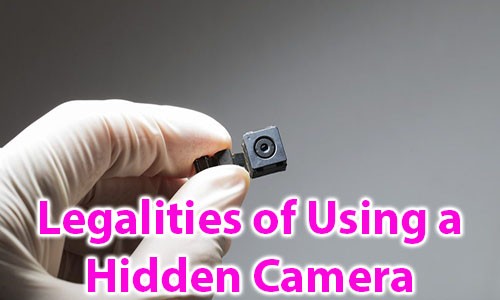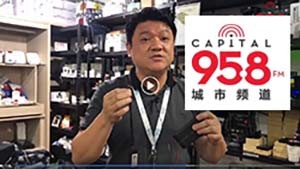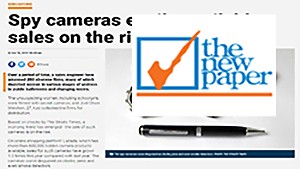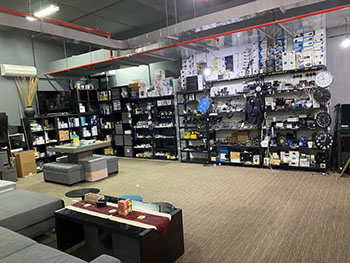Legalities of Using a Hidden Camera
 The inequality between legal and illegal installations of hidden cameras today is something that continues to perplex people across the United States of America and they ask about conditions of the legality of the use of the hidden camera. The motive for this is that the moment when a concealed camera becomes illegal can be a grey area. Each state of the United States of America has its regulations and laws concerning the legality of hidden cameras, making it rigid to generalize the installation of the watch tools. Generally speaking though, it is not illegal to record surveillance video with a hidden camera in your public place or home without the permission of the person you’re recording. However, some exemptions must be followed, or it becomes illegal. Be acquainted with this and your state law will make it easier for you to decide if the installation of your security camera is right with the law or not.
The inequality between legal and illegal installations of hidden cameras today is something that continues to perplex people across the United States of America and they ask about conditions of the legality of the use of the hidden camera. The motive for this is that the moment when a concealed camera becomes illegal can be a grey area. Each state of the United States of America has its regulations and laws concerning the legality of hidden cameras, making it rigid to generalize the installation of the watch tools. Generally speaking though, it is not illegal to record surveillance video with a hidden camera in your public place or home without the permission of the person you’re recording. However, some exemptions must be followed, or it becomes illegal. Be acquainted with this and your state law will make it easier for you to decide if the installation of your security camera is right with the law or not.
Whether you are enforcing your security system, placing a camera in your place of work, or considering the installation of a camera on our exterior of your property, you are most likely marveling if you are violating any laws in the process. Do you have to update people if they are under camera surveillance? Are there a few places that are illegal when a camera is installed? You want to certainly teach yourself on the legitimacy of laying hidden cameras, deeming the crime of being caught illegally spying on people won’t fare well for you going forward.
We are going to observe the most common places to deem placing a camera, and when it’s deemed legal versus illegal.
The legality of Spying:
The legality of spying is both a moral and ethical issue. Whilst the federal law usually looks upon spying as legal, there are examples when spying becomes illegal. Laying a concealed camera in a private place or for hateful intent makes the use of hidden cameras illegal. Since a variety of states have a varying set of laws on the use of surveillance and recording technology you have to be recognizable with these laws in your state. In private places such as bathrooms, it is illegal to use spy cameras as the users of these areas have logical expectations for full privacy.
Laws about hidden cameras:
Sometimes, you may necessitate using a concealed camera. Before installing the camera, you may marvel at some moral and legal questions. Are concealed cameras illegal? Should I tell the subject about the presence of concealed cameras? In all 50 states of the United States of America, the use of hidden cameras is legal. When in public places, it is legal to record secret videos using hidden cameras. These places comprise outdoor parks, restaurants, retail stores, offices, business centers, and city streets. Laws about logical rights to privacy still apply to the use of secreted cameras in public areas. However, Maine, South Dakota, Hawaii, Minnesota, New Hampshire, Utah, Kansas, Michigan, Delaware, Arkansas, Georgia, Alabama, and California necessitate the written permission of your employee to have a concealed camera vigilance them. These states do not permit the employ of hidden cameras in personal places and in areas where the subjects do not imagine unauthorized recording.
States, for example, Michigan deem it wrongdoing to install or use a secreted camera without authorization.
Surveillance at Home:
We have all listened about nanny cameras those cameras used to spy on your nannies whereas you are out at work or for shopping. Usually speaking, it is legal in the United State to record surveillance footage with a concealed camera in your home without the permission of the person you are recording. That is why the use of nanny cams are becoming gradually more common among parents and guardians who work outside the homes in the day. Before placing a nanny camera in your home for the surveillance of your children and family, you should read the laws in your state.
For high-security measures, you may also talk to an attorney about the definite ways you plan to use your camera.
One important distinction, you should keep in your mind, is the difference between the audio recording and video recording. In the majority of states, it is a violation of law to record hidden camera videos in areas where your subjects have a reasonable expectation of privacy. In your homes, these areas might include bathrooms and bedrooms if your subjects live in your home.
Cameras are hidden in clocks, teddy-bears, etc. these tools provided parents with some tranquility of mind while nannies came to look after the children. As you can envisage, the most legitimacy you are ever going to come across with a watch camera is on your belongings. Generally, concealing these nanny-cams is legal. The similar thing goes with a surveillance system exterior of your home and on your property. How you opt to use a camera on your property will be dominant in the cases put forth in court. The baseline is: feel free to employ secreted cameras in any way you observe fit at your home as long as your guests have a logical expectation of privacy. In your home, these places might hold bathrooms or bedrooms if the subject is living on the property.
Spying on the children, at another home is not legal if your child goes over to the home of a friend, even though it is for the safety of your children.
Not every state specifically prohibits the use of concealed cameras in places where a subject might have a reasonable expectation of privacy. But that doesn’t mean you should presume it is legal–or ethically satisfactory–to record activities of a person without his or her permission in any private place.
Also, keep in mind that it is illegal in the United States to record video or audio with the express reason for blackmail or other nasty intent. Even if you follow all other rules governing secret surveillance in your state, it is significant to keep in mind that your rights are relinquished if you engage in criminal conduct. For the detection of hidden cameras, you can utilize our quality products, for more details click here.
About Airbnb:
Nonetheless, when we are talking about homes, if you serve Airbnb guests or any other types of people that you welcome into your home, it is illegal to spy on them. The clause “reasonable expectation of privacy”, this regulation denotes that hidden cameras are not legal in private conditions, to include bedrooms and bathrooms. If you are an Airbnb host, it is not permissible to lay a camera in your guestroom. If you deem that you still want to lay the camera in these areas, you owe it to the guests to watchful them of the observation. However, that is a completely separate issue you will have to adapt to Airbnb and so forth.
Public Placement of Hidden Camera:
Setting up cameras in your home is one thing, how about placing them in a public place? Usually, the use of surveillance cameras, at a public place such as retail stores, restaurants, or other places of business is legal. People who are out in public places are already abandoning their privacy. It is also legal to record secret video outdoors in shopping malls, city streets, parks, or public squares. The proper expectation of privacy guidelines applies to the setting of hidden cameras in public places as well. It is illegal to record a secret video in locker rooms, changing rooms, restrooms, hotel rooms, and other private areas.
Hidden Camera in the Workplace:
Neither the federal government in the United States of America nor the states’ governments have set up laws ruling hidden camera recording in the workplace. If you want to set a concealed camera in your place of work, you are legally authorized to do so. At present, business owners in the United States are usually within their legal rights if they install hidden cameras in their offices and other places of business. The Business owners are not legally bound to tell their employees about the presence of hidden cameras, though several business owners opt for notifying their employees of the presence of hidden cameras. Derived from guidelines set up by the National Labor Relations Board, larger corporations–particularly those that take up union workers–frequently discuss with the appropriate trade unions in advance to set up rules governing the use of concealed cameras. But again, there exist few defined federal or state laws that need them to do so. As a businessman, when you have legal rights to set a hidden camera in your business place to monitor the activities of your employees. The employees have a logical right to privacy at their offices and workplaces. If you violate the privacy of your employees the job, they have a right to take legal action you. A lot of owners inform their employees of the use of cameras at their places so they are given the confidence to show their best conduct, but it is not compulsory.
I describe my personal experience of the use of hidden cameras in the workplace. I taught in the Educators School, Chakwal, Pakistan which is one of the leading schools in the city. The Owner of the school used Hidden cameras in the class-rooms and staff-rooms to monitor the activities of the teachers as well as students. By setting hidden cameras in classrooms and other rooms of the school, the Principal and owner of the school wanted to check physical torture on the students because a few of the teachers started to give physical punishment to their students. They also wanted to keep their teachers alert at the time of their duty to boost the standard of education. So, it is also legal here in Pakistan.
Surveillance Through other devices:
Audio Surveillance is another powerful tool to observe your employees at your workplace when you are not around. The Laws of Hidden Camera Surveillance are not as defined as the laws surrounding audio surveillance. If you want to record an in-person conversation or a telephone call, the federal law of the United States of America explains that at least one of the parties must be made aware and permission to the recording. It is known as a one-party consensus that is how most states of the United States of America do it today. California, Connecticut, Florida, Illinois, Maryland, Massachusetts, Montana, New Hampshire, Pennsylvania, and Washington are the states where two-party consent is ruling over. Hawaii permits one-party permission for audio recordings, but if the recording device is located in a private place it requires two-party consent.
Identify Your Rights:
If you consider you are under illegal video surveillance, you can simply attain a camera detector to get hidden cameras, audio bugs, and tracking devices. Contact our counter surveillance section to purchase one of these up at an affordable price, click here. Above all, you can instruct yourself on how to place these hidden cameras. If you are a guest of Airbnb, you can inform the host to Airbnb. Similar things are going on for hotels. You should be aware of the fact that when a hidden camera is legal and when it is illegal.
Use of hidden cameras, in parks, shopping malls, schools, colleges, business centers, offices, restaurants, hotels, is legal but in bedrooms, bathrooms, and other places of personal privacy use of hidden is illegal to use. Placing a hidden camera in a place of personal privacy or malicious intent makes the use of hidden cameras illegal.
Final word:
Whether you a boss of a company or a business or you are an employee if legal guidelines are still vague for you and you have any concerns with the installation and use of secreted and spy cameras? Discuss with a legal professional or attorney professional who will assist you understand how to exercise your veiled cameras legally. To find a hidden camera of your own if you are in a fix because of hidden surveillance please visit our website for a quality product. High-quality devices to detect hidden cameras are available.








